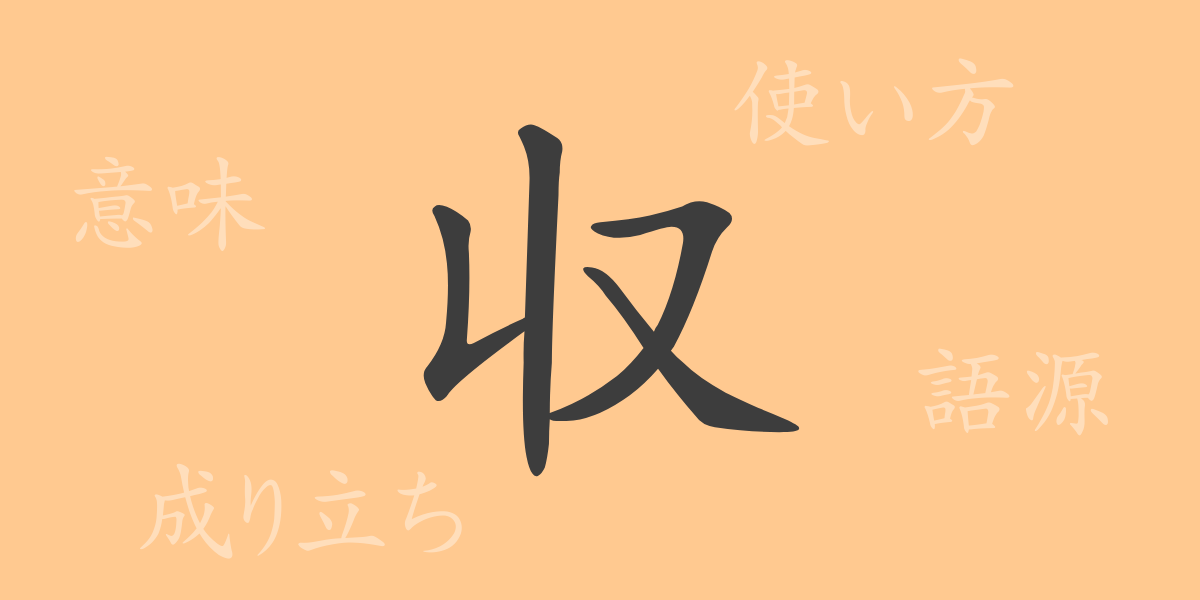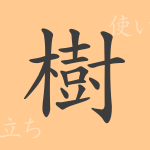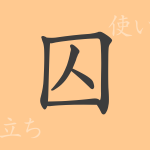Each character in the Japanese language carries its own unique history and meaning. “収(しゅう)” is one of the kanji characters frequently used in everyday life and appears in a variety of contexts. This article explores the rich history and usage of the kanji “収(しゅう)” and its significance in the daily lives of Japanese people.
Origin of 収(しゅう) (Etymology)
The kanji “収(しゅう)” originated in ancient China. It originally depicted the image of a hand bundling rice stalks, which evolved into the broader meanings of “harvest” and “store.” This action of bundling rice led to meanings such as “collect” and “gather,” making “収(しゅう)” a multifaceted character encompassing both physical and abstract concepts.
Meaning and Usage of 収(しゅう)
The kanji “収(しゅう)” is used to denote actions such as “to store,” “income,” “collection,” and more, signifying the acts of receiving, gathering, and storing. In economic contexts, it frequently appears in terms like “収益(しゅうえき)” (revenue) and “収支(しゅうし)” (balance of income and expenditure). It also represents the psychological aspect, as in “心を収める(こころをおさめる),” meaning to control one’s emotions. Thus, “収(しゅう)” covers a wide range of concepts from the tangible to the intangible.
Readings, Stroke Count, and Radical of 収(しゅう)
The kanji “収(しゅう)” is one of the basic kanji frequently encountered in reading and writing.
- Readings: The on’yomi (音読み) is “シュウ,” and the kun’yomi (訓読み) is “おさ.める” and “おさ.まる.”
- Stroke count: 4 strokes
- Radical: 又(また)
Idioms, Phrases, and Proverbs Using 収(しゅう)
There are numerous idioms, phrases, and proverbs in Japanese that include the kanji “収(しゅう).” For example, “収入(しゅうにゅう)” refers to the total amount of money earned, and “収支(しゅうし)” indicates the balance of income and expenses. “収集(しゅうしゅう)” means to gather things or information, and “心を収める(こころをおさめる)” is used to describe controlling one’s emotions. These expressions are essential in daily life and business contexts in Japan.
Conclusion on 収(しゅう)
The kanji “収(しゅう)” holds a simple yet profound meaning and is deeply connected to the lives of Japanese people. From ancient times to the present, it has been used in various contexts, ranging from the physical act of gathering to the abstract concept of organizing information and emotions. Its usage spans economic aspects to the human psyche, making it an indispensable part of communication. As one of the common kanji, “収(しゅう)” will continue to be an integral character in the Japanese language.

























